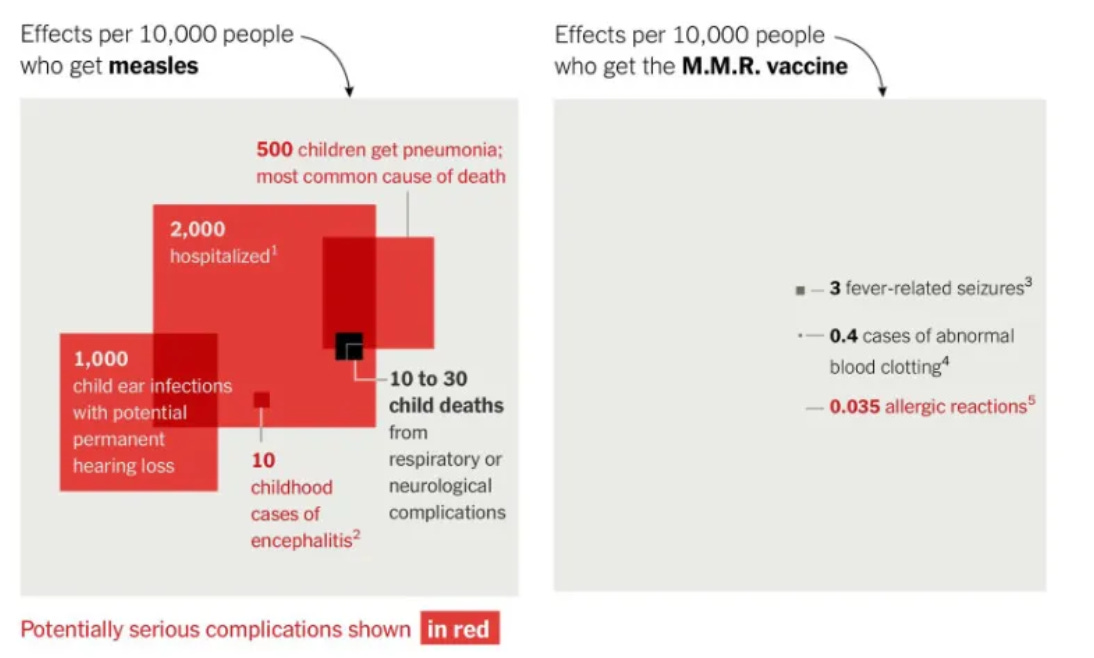What you need to know about the MMR and measle protection for you and your family
Myron Yaster MD and Mark Schreiner MD
It is both unfathomable and unconscionable that the wealthiest country in the world is facing a measles outbreak…a completely preventable disease. I mean, how in the world can this be occurring? This is a disease that I, and surely many of you, thought had been conquered and eliminated. Indeed, even as a resident in pediatrics in the late 1970s I (MY) never saw a single case in a child! (I (MS) cared for two children, one a teenager and one a newborn who died from measles in the CHOP PICU in 1980 giving me great respect for this disease. We will address the measles outbreak and the encouraged acceptance of vaccine denial by the current American administration in a future PAAD. I didn’t think I (MY) could wait to address this any longer and in today’s PAAD, I will answer many questions you may have about your own need for protection (revaccination/booster).
Today’s information comes directly from an article by Katelyn Jetelina in her Substack “Your local epidemiologist”which can be found at
(The PAAD is also published in Substack). We’ll have more from this site in the next couple of weeks.
Original article
10 FAQs on MMR and Measles Protection
Please download this article and read it in its entirety. We’ve cherry picked some of the most frequent questions and answers that I (MY) have been asked by colleagues and neighbors.
What is “up-to-date” on the measles vaccine? Do I need a booster?
“Should I check my titers? Does that help? T cell and B cell memory are particularly important because once measles enters your body, it doesn’t replicate that fast. It is slow enough that if you get infected, they will start pumping out antibodies to prevent you from getting sick. This means that a negative result on titers does not necessarily mean you are not protected. The main reason to get titers would be as a matter of insurance coverage for a booster-—some plans won’t cover the cost unless titers to one of the MMR viruses come back negative.
“Is infection-induced immunity better than vaccine-induced immunity? Infection-induced immunity may last slightly longer, but at a high cost—measles can lead to severe complications, including pneumonia, encephalitis, and death.
“Why wait until 12 months to get children vaccinated? Epidemiologists and pediatricians try to find the sweet spot by balancing a few factors: Maternal antibodies waning, Maturity of the immune system, The most common age of infection. That said, if there is a measles outbreak, young children need protection as soon as possible. Early vaccination is one provisional measure we can take starting at 6 months. This early dose does not count toward the two-dose series, which will be needed at 12 months.”
Measles can severely suppress the immune system making individuals susceptible to diseases for which they had prior immunity from illness or vaccination. It can lead to inability to fight infections. The death toll from measles might therefor extend long after recovery from acute infection.
The bottom line: “If you’re fully vaccinated, you can be confident in your protection. If not see your doctor and get vaccinated. We continue to follow the data, but failure to vaccinate still plays the biggest role in measles in the United States compared to vaccine failures.”
Send your thoughts and comments to Myron who will post in a Friday reader response.







